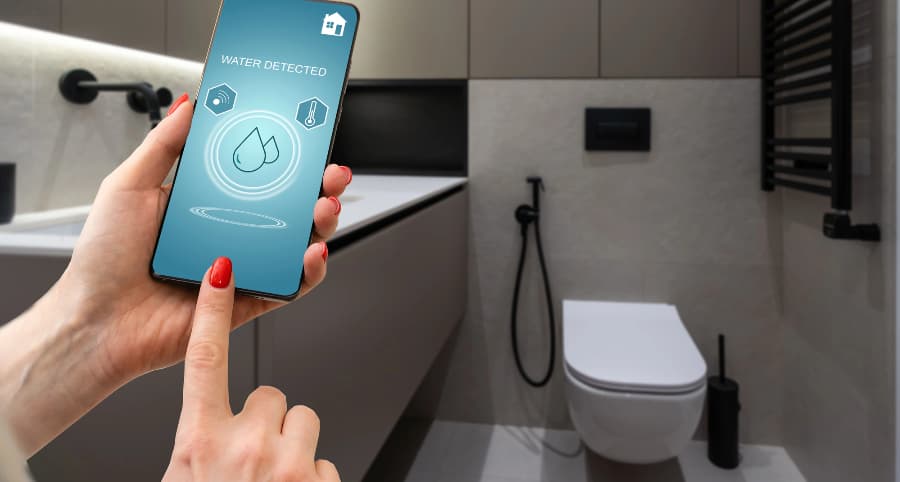How does a water sensor work and why use one with your Stockton smart home?

One small leak in your home can result in significant problems and thousands of dollars worth of damage. You have to protect against this risk; luckily, there’s a straightforward way to achieve this. A water sensor is a budget-friendly, simple, and effective solution. Learn how they work and why you should integrate water sensors into your Stockton smart home.
How water sensors safeguard Stockton homes
Water infiltrates homes in numerous ways, whether from an appliance malfunction, plumbing problem, weather-related event, or just human error. However it occurs, you must know right away, and this is where water sensors come in. But how precisely do they work?
Many water sensors are conductive and work with two electrodes. When water comes in contact with the electrodes, an electrical link is created, triggering your alarm. You’ll also come across capacitive sensors that give off an electrical field. When water contacts the conductive areas of these sensors, the field is broken, and your alarm sounds. Optical sensors utilizing infrared LED light are another option.
Get more from your water sensor
Some advanced water sensors offer even more protection as they feature integrated temperature sensors. This is an excellent benefit in preventing frozen pipes. If there’s a severe drop in temperature, you’ll find out at once. Taking steps before pipes burst will save you from water damage and expensive repairs.
Why connect water sensors to your Stockton smart home?
When water issues happen, you need to be alerted right away. You can achieve this objective by integrating water sensors into your smart home. Whether you’re on site to hear the alarm or somewhere else, you’ll be sent an instant alert on your cell phone. As an additional backup, your 24/7 monitoring agents will be alerted. Each second is critical in a water emergency to control the damage and disruption to your life.
Where should you put water sensors?
Any area prone to flooding is an ideal place for water sensors. Consider installing in these spots:
- Bathrooms: Attach in back of toilets or near bathtubs.
- Basements: Water frequently enters basements via cracked walls or as a result of heavy rain or malfunctioning sump pumps.
- Near water heaters or appliances: Any water-connected appliance might leak in time.
- Below sinks: Water sensors are great for discovering leaky pipes in locations hidden from view.
- Attics: Catch roof leaks early and avert expensive repairs.
Request water sensors with your Vivint smart home
Give your property the comprehensive protection it requires with Vivint’s modern components. Our water sensors in Stockton connect to your Vivint smartphone app to provide automatic notifications whenever your alarm activates. You also benefit from incorporated temperature sensors to avert frozen pipes. Explore the smart home tools available in Stockton by calling (209) 379-0036 today.